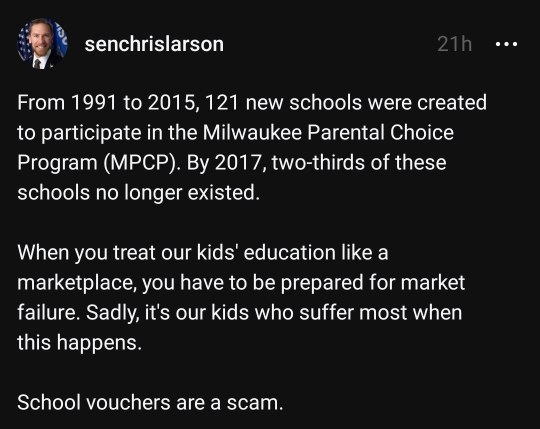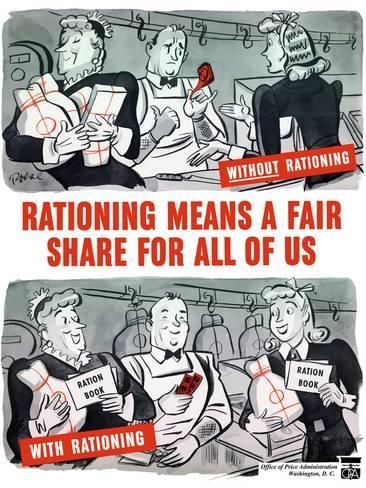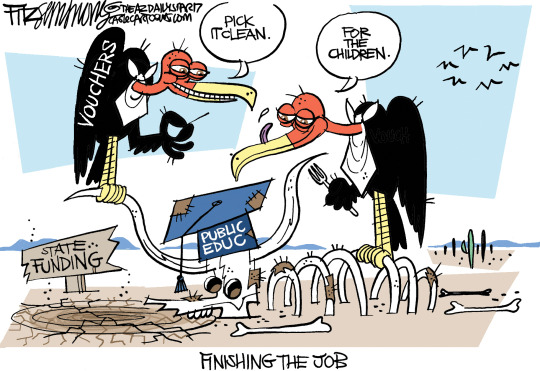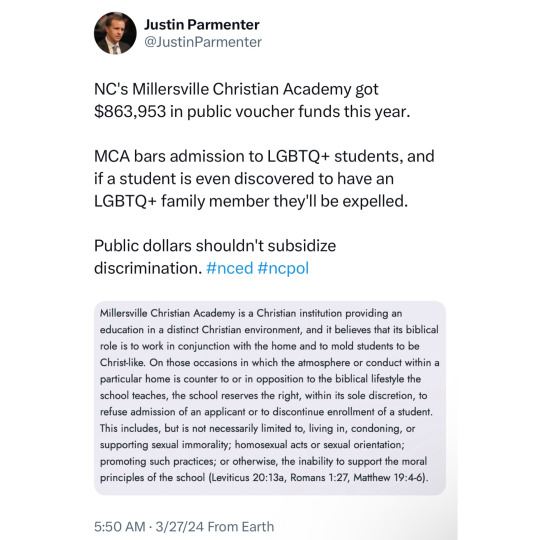#Vouchers
Text
Walked pass Nine Fresh (九鲜) in Sun Plaza and mum wanted aiyu jelly dessert. Their seasonal Sour Plum Ai-Yu Series promotion is still on even though it indicated only till 15th July 2024. You also receives a set of Vouchers with a minimum spending of S$9 during their 12th anniversary celebration.


Bought both the A and B items on the menu and topped up S$1 sweetened red beans for the two cups. Mum got the Sour Plum Ai-Yu A (蜂蜜寒天青梅爱玉冻) which comes with sour plum aiyu, honey popping jellies, kantan jellies and taro balls.


I took the Sour Plum Ai-Yu B (珍珠芦荟青梅爱玉冻) with sour plum aiyu, aloe vera cubes, black pearls and taro balls. The jelly is infused with the salty and sourish flavours of sour plums which in turn adds a refreshing profile to the otherwise sweet dessert.

Topmost image from Nine Fresh Singapore.
#Nine Fresh#九鲜#Sour Plum Ai-Yu Series#Ai-Yu#爱玉#Limited Time Promotion#New Product#Vouchers#Sour Plum Ai-Yu#蜂蜜寒天青梅爱玉冻#珍珠芦荟青梅爱玉冻#Aloe Vera Cubes#Black Pearls#Taro Balls#Yam Balls#Honey Popping Jellies#Kantan Jellies#Chilled#Sweet#Sour#Dessert#Snack#Asian Food#Food#Buffetlicious
72 notes
·
View notes
Text

School choice and vouchers produce nothing but corporate greed and a 67% fail rate.
The kids/students don't deserve these adults.
399 notes
·
View notes
Text
Their war on education continues. They like their voters to be poorly educated.
10 notes
·
View notes
Text

With all the issues with food and other products, I keep hearing things like we need to bring back rationing, the government needs to hand out vouchers good for only so much food/product per person (think WIC type vouchers) per month, stores should restrict how much people can buy so everyone gets their "fair share". The problem is I keep hearing this from people ranging from about 30 to 45. Many I see driving hybrid cars/trucks or have some other nearly new vehicle. Many also gripe about the "hoarding" done by preppers and homesteaders.
Questions they never want to answer:
Who decides what is everyone's "Fair Share"?
Who, at the store decides what the limit on sales is? Now I can see if the store gets a limited amount of items (think nearly every Christmas or the last ammo shortage), they can limit to 1 or 2 per person. But think things like eggs, what is the monthly limit per person, 3? 6? 12? If it is a family of 6 does everyone need to go through the checkout to get their limit? Or can one family member go through with everyone's ID to buy the per person limit? What about meat? OTC Medications? How many aspirins/tylenols per person monthly? Sanitary items? Antacids? Bandaids and what size? Baby wipes? Diapers? The list goes on.
As for government vouchers, I see people who get WIC and Food Stamps that complain because it's not enough to make it to the next allocation date. But others have (FS) funds left at the end of the month, or trade with friends/family items from their WIC benefits because the kid can't, not wont but CAN'T eat what the voucher pays for and are told if they don't get everything they risk loosing their benefits.
What IS everyone's fair share? And how would that be determined? What if you was limited to something you can't eat/use but are prevented from buying what you can eat/use because it's not fair to others?
5 notes
·
View notes
Text
Hey gang! Per request, I've started doing digital vouchers! Feel free to email me with the amount you want to gift a friend and once we're sorted then they can commission me like normal when I'm Open and use their voucher!

And here's my price ranges again so you can see what amounts to be thinking🙏
(And genuine apologies I haven't been open too much this month, finishing off some work over the next few weeks but should be Active again soon.)


10 notes
·
View notes
Text

David Fitzsimmons, Arizona Daily Star
* * * * *
Across Florida, spontaneous demonstrations against Ron DeSantis' gutting of public education. This summer, Iris Mogul – a junior at a Miami high school – found out that she wouldn’t be able to take an AP African American history course that she had planned for the coming semester because it had been blocked by the state’s department of education.
“As presented, the content of this course is inexplicably contrary to Florida law and significantly lacks educational value,” the department said in a statement. “It felt so far away when I first heard about all of this,” says Mogul, who only had a passing knowledge of book challenges and changes to school curriculum previously. “But that is really when it hit me – when it started to affect me directly.”
Now, Mogul is prominent among the growing number of students and parents in Miami-Dade county and across Florida who are speaking out in opposition to book challenges, the capture of Florida school boards by conservative activists and this summer’s latest policy changes, which includes the expansion of DeSantis’s Parental Rights in Education Act.
[‘Reading is resistance’: students and parents take on DeSantis’s book bans]
7 notes
·
View notes
Text

Their “statement of nondiscriminatory policy” actually ends with the nonsense quoted in the post, and points out school vouchers are…not good.
#nc#north carolina#school#vouchers#school vouchers#discrimination#education#politics#theocracy#nc politics#NCpol#us politics#USpol#lgbtq#lgbtqia
2 notes
·
View notes
Text

25 Brands onboarded within100 days | Pauket
3 notes
·
View notes
Text
youtube
Learn the best 9 tips to find hotel vouchers for the homeless online in this step-by-step guide. Discover eligibility criteria, & reliable resources.
Here, https://youtu.be/PHy_LrNINok
#Vouchers#emergencyshelter#homelessness#hotelvoucher#onlinehotelvouchers#freehotelvouchers#housingassistance#Youtube
2 notes
·
View notes
Text
0 notes
Text
Referral link time!
Hello folks, it is one again the time of year where I put referral link in case anyone wants some stuff that also helps me.
This year its Mistplay! If you want to play games and earn points to get amazon vouchers, Mistplay lets you do that here
Most of the games are mobile and clearly pushing gotcha style boxes but you can free-play and still do well, I've had about £200 worth of vouchers this year just by spam playing whatever is being pushed that week. Delete the games as soon as you get to the checkpoint you need so you don't get spammed with notifications and you're all good. Slight warning ⚠️ They can be pushy about in app purchases but you don't have to make them, just be aware of that going in if that's something you struggle with.
1 note
·
View note
Text





Made some silly li'l vouchers for a car wash!
1 note
·
View note
Text
(Long Post Atlantic)
Rural Republicans Are Fighting to Save Their Public Schools
Many state legislators see voucher programs as a threat to the anchors of their communities.
By Alec MacGillis

This article was featured in the One Story to Read Today newsletter. Sign up for it here.
This article is a collaboration between The Atlantic and ProPublica.
Drive an hour south of Nashville into the rolling countryside of Marshall County, Tennessee—past horse farms, mobile homes, and McMansions—and you will arrive in Chapel Hill, population 1,796. It’s the birthplace of Confederate General Nathan Bedford Forrest, who helped found the Ku Klux Klan. And it’s the home of Todd Warner, one of the most unlikely and important defenders of America’s besieged public schools.
Warner is the gregarious 53-year-old owner of PCS of TN, a 30-person company that does site grading for shopping centers and other construction projects. The second-term Republican state representative “absolutely” supports Donald Trump, who won Marshall County by 50 points in 2020. Warner likes to talk of the threats posed by culture-war bogeymen, such as critical race theory; diversity, equity, and inclusion; and Sharia law.
And yet, one May afternoon in his office, under a TV playing Fox News and a mounted buck that he’d bagged in Alabama, he told me about his effort to halt Republican Governor Bill Lee’s push for private-school vouchers in Tennessee. Warner’s objections are rooted in the reality of his district: It contains not a single private school, so to Warner, taxpayer money for the new vouchers would clearly be flowing elsewhere, mostly to well-off families in metro Nashville, Memphis, and other cities whose kids are already enrolled in private schools. Why should his small-town constituents be subsidizing the private education of metropolitan rich kids? “I’m for less government, but it’s government’s role to provide a good public education,” he said. “If you want to send your kid to private school, then you should pay for it.”
The coronavirus pandemic provided a major boost to supporters of school vouchers, who argued that extended public-school closures—and the on-screen glimpses they afforded parents of what was being taught to their kids—underscored the need to give parents greater choice in where to send their children. Eleven states, led by Florida and Arizona, now have universal or near-universal vouchers, meaning that even affluent families can receive thousands of dollars toward their kids’ private-school tuition.
Read: Salvaging education in rural America
The beneficiaries in these states are mostly families whose kids were already enrolled in private schools, not families using the vouchers to escape struggling public schools. In larger states, the annual taxpayer tab for the vouchers is close to $1 billion, leaving less money for public schools at a time when they already face the loss of federal pandemic aid.
Voucher advocates, backed by a handful of billionaire funders, are on the march to bring more red and purple states into the fold for “school choice,” their preferred terminology for vouchers. And again and again, they are running up against rural Republicans like Warner, who are joining forces with Democratic lawmakers in a rare bipartisan alliance. That is, it’s the reddest regions of these red and purple states that are putting up some of the strongest resistance to the conservative assault on public schools.
Conservative orthodoxy at the national level holds that parents must be given an out from a failing public-education system that force-feeds children progressive fads. But many rural Republican lawmakers have trouble reconciling this with the reality in their districts, where many public schools are not only the sole educational option, but also the largest employer and the hub of the community—where everyone goes for holiday concerts, Friday-night football, and basketball. Unlike schools in blue metro areas, rural schools mostly reopened for in-person instruction in the fall of 2020, and they are far less likely to be courting controversy on issues involving race and gender.
Demonizing public education in the abstract is one thing. But it’s quite another when the target is the school where you went, where your kids went. For Todd Warner, that was Forrest High School, in Chapel Hill. “My three kids graduated from public schools, and they turned out just fine,” he said. “Ninety-five percent of our students, our future business owners, our future leaders, are going to the public schools. They’re not going to private. Why take it away from them?”
The response from voucher proponents to the resistance from fellow Republicans has taken several forms, all of which implicitly grant the critics’ case that voucher programs currently offer little benefit to rural areas. In some states, funding for vouchers is being paired with more money for public schools, to offer support for rural districts. In Ohio, voucher advocates are proposing to fund the construction of new private schools in rural areas where none exist, giving families places to use vouchers.
But the overriding Republican response to rural skeptics has been a political threat: Get with the program on vouchers, or else.
That’s what played out this year in Ohio’s Eighty-Third District, in the state’s rural northwest. Last summer, Ohio adopted universal private-school vouchers, with middle- and working-class families eligible for up to $8,407 per high-school student and even the very wealthiest families eligible for almost $1,000 per child. Private-school leaders urged already enrolled families to seek the money, and more than 140,000 families applied for vouchers. The cost has exceeded estimates, approaching $1 billion, with most of it going to the parochial schools that dominate the state’s private-school landscape. Voucher advocates are now pushing to create educational savings accounts to cover tuition at unchartered private schools that are not eligible for the vouchers.
Read: Do private school vouchers promote segregation?
School leaders in Hardin County—with its cornfields, solar-panel installations, and what was once one of the largest dairy farms east of the Mississippi—are deeply worried that vouchers stand to hurt county residents. Only a single small private school is within reach, one county to the south, which means that virtually no local taxpayers would see any of that voucher money themselves—it would be going to private-school families in Columbus, Cincinnati, and other large population centers. (And under Ohio law, the very public schools that are losing students must pay to transport any students who attend private institutions within a half-hour drive of the public school.)
Craig Hurley, the superintendent for Hardin’s Upper Scioto Valley District, is a solidly built 52-year-old who calls himself a staunch conservative. He attended the district’s schools and has worked in them for 30 years. He knows that they provide meals to 400 students, nearly two-thirds of whom qualify for free and reduced lunch. Even though the high school can muster only 20 players for football—basketball fares better—the fans come out to cheer. “Our district is our community,” he told me. “The more you separate that, the less of a community we’re going to be.”
Hurley has calculated that local schools are receiving less state funding per student than what private schools now receive for the maximum possible voucher amount. Yet private schools face almost none of the accountability that public schools do regarding how the money is spent and what outcomes it achieves. “We have fiscal responsibility on all of it, on every dime, every penny we spend,” he said. “There’s no audit for them.” Not to mention, he added, “a private school doesn’t have to accept all students, right? They pick who they want.”
Thirteen miles east, Chad Thrush, the school superintendent in Kenton, the county seat, noted that his school system is the second-largest employer in town, after Graphic Packaging, which makes plastic cups for vending machines. He worries that the rising cost of the voucher program will erode state funding for public schools, and he worries about what would happen to his district if a new private school opened in town. Thrush understands the appeal of vouchers for parents who want a leg up for their kid. But, he told me, “we need to be looking at how we’re preparing all students to be successful, not just my student.”
As it happens, the two superintendents have a crucial ally in Columbus: their state representative, Jon Cross. Like Warner in Tennessee, Cross is an ardent pro-Trump conservative, and deeply opposed to private-school vouchers. At a legislative hearing last year, he cut loose at a lobbyist for Americans for Prosperity—the conservative advocacy group founded by the industrialist Koch brothers—who was testifying for vouchers, one of the organization’s long-standing causes. “Wouldn’t we be better off taking some money in our budget to fix the schools?” Cross said. “I tell you what, I really like my public schools. I’m really proud that Carson and Connor, my sons, go to Kenton City Schools and get an education from there just like I did.”

The schools in Hardin and Marshall Counties are majority white. But some rural Republican legislators in other states have been willing to buck their party leaders on vouchers even in more racially diverse districts. In Georgia, of the 15 Republican state representatives who blocked a voucher proposal last year, more than half came from rural areas with substantial Black populations. One of them was Gerald Greene, who spent more than three decades as a high-school social-studies teacher and has managed to survive as a Republican in his majority-Black district in the state’s southwestern corner after switching parties in 2010.
Greene believes vouchers will harm his district. It has a couple of small private schools in it or just outside it—with student bodies that are starkly more white than the district’s public schools—but the majority of his constituents rely on the public schools, and he worries that vouchers will leave less money for them. “I just felt like we were abandoning our public schools,” he told me. “I’m not against private schools at all, but I just did not see how these vouchers would help southwestern Georgia.”
After failing to pass a voucher program last year, the state’s Republican governor, Brian Kemp, and proponents in the legislature tried again this year, and this time they succeeded, albeit with vouchers more constrained than elsewhere: They can be used only by students in school districts that are ranked in the bottom quartile and whose families make less than 400 percent of the poverty level ($120,000 for a family of four), and their total cost can’t exceed 1 percent of the state’s total education budget, which caps them now at $140 million.
Partisan pressures simply became too strong for some skeptical Republicans, including Greene’s counterpart in the Senate, Sam Watson. Seminole County Superintendent Mark Earnest told me about the conversation in which Watson let him know that he was going to have to support the limited vouchers. “They have turned this into a caucus priority. It’s getting very political,” Watson said. “Thanks for letting me know,” Earnest replied, “but all vouchers are bad for public education.” Watson’s response: “I know, but I couldn’t go with the Democrats. Sorry.” (Watson did not respond to a request for comment.)
The highest-profile rural Republican resistance to vouchers has come in Texas, the land of Friday Night Lights and far-flung oil-country settlements where the public schools anchor communities. Late last year, the Texas House voted 84–63 to strip vouchers out of a broad education bill. In response, Governor Greg Abbott launched a purge of anti-voucher Republicans in this year’s primaries, backed by millions of dollars from the Pennsylvania mega-donor Jeff Yass, a finance billionaire.
Among those targeted was Drew Darby, who represents a sprawling 10-county district in West Texas, and who frames the issue in starkly regional terms: The state’s metro areas depend on his constituents to provide “food, fiber, and hide,” to “tend the oil wells and wind turbines to provide electricity to people who want to be just a little cooler in the cities.” But without good public schools, these rural areas will wither. “Robert Lee, Winters, Sterling, Blackwell,” he said, listing some hamlets—“these communities exist because they have strong public schools. They would literally not exist without a good public-school system.”
Darby, a fiscal conservative, is also opposed to a new entitlement for private-school families that is projected to soon cost $2 billion a year. “In rural Texas, there’s not a whole lot of private-school options, and we want our schools to get every dollar they can. This doesn’t add $1, and it’s not good for rural Texas.”
Darby managed to stave off his primary challenge, but 11 of the 15 voucher resisters targeted by Abbott lost, several in races so close that they went to a runoff. Abbott is unapologetic: “Congratulations to all of tonight’s winners,” he said after the runoff. “Together, we will ensure the best future for our children.”
Also succumbing to his primary challenger was Jon Cross, in western Ohio. His opponent, Ty Mathews, managed to make the campaign about more than just vouchers, taking sides in a bitter leadership split within the GOP caucus. And for all the concerns that local school leaders have about the effect of vouchers, the threat remained abstract to many voters. “I’m not worried about it, because we don’t have the revenue here anyways in this town for anything to be taken from us to be given to a bigger town,” one 60-year-old woman told me after casting her vote for Mathews. A younger woman asked simply: “What exactly are the vouchers?”
But in Tennessee, Todd Warner and his allies staved off the threat again this year. To overcome rural resistance, voucher proponents in the Tennessee House felt the need to constrain them and pair them with hundreds of millions of dollars in additional funding for public schools, but this was at odds with the state Senate’s more straightforward voucher legislation. The two chambers were unable to come to an agreement before the session’s end in April, by which point the House bill had not even made it to the floor for a vote.
For Democratic voucher opponents in the state, the alliance with Warner and other rural Republicans was as helpful as it was unusual. “It was strange,” Representative Sam McKenzie, a Black Democrat from Knoxville, told me. McKenzie compared it to Twins, a movie in which Arnold Schwarzenegger and Danny DeVito played unlikely fraternal twins: “Representative Warner and I were in lockstep opposition to this voucher scam.”
Watch: Why school choice fails
One voucher supporter, Representative Scott Cepicky, told me he was confident that his side would eventually prevail. “We’ll work on this again next year,” he said. “The governor is committed that we’re going to run on school choice again.” And Americans for Prosperity has made clear that it’s coming after voucher opponents. Its Tennessee state director, Tori Venable, told Warnerduring the legislative session that “I can’t protect you if you ain’t on the right side of this.”
Another conservative group, the American Federation for Children, sent out a text message in March attacking Warner for his opposition to “parental rights,” without using the term vouchers. And a retired teacher in Marshall County, Gwen Warren, told me she and her husband recently got a visit from an Americans for Prosperity canvasser citing Warner’s opposition to vouchers. “She said, ‘We’re going around the neighborhood trying to talk to people about vouchers. We feel like Tennesseans really want the voucher system.’” To which, Warren said, her husband replied, “You’re very much mistaken, lady. We don’t want vouchers in this county, and you need to go away.”
Warner remains unfazed by all this. He is pretty sure that his voucher opposition in fact helped him win his seat in 2020, after the incumbent Republican voted for a pilot voucher system limited to Nashville and Memphis. And he notes that no one has registered to challenge him in the state’s August 1 primary. “They tried to find a primary opponent but couldn’t,” he said with a chuckle. “I was born and raised here all my life. My family’s been here since the 18th century. I won’t say I can’t be beat, but bring your big-boy pants and come on, let’s go.”
This article is a collaboration between The Atlantic and ProPublica.
#refrigerator magnet#school vouchers#war on education#republicans#tennessee#vouchers#defunding public schools#republican criminals#wake up#biden harris 2024
0 notes
Text
Who Should Drop Out Again??
Let me be clear. Joe Biden could show up for a debate on a stretcher in a full oxygen tent. I’m still voting for him over the rapist who wants to send us back 50 years. Imagine that Trump would go that far to avoid jail and the world knowing he’s been broke since ‘78. Laundering Russian cash is a tough way to live.
I only had the conversation the other night about “Kamala or Gavin or Pete”…

View On WordPress
0 notes
Text
Leave me your email for $15 towards items. #imaproblem #Redbubble #RBANDME #findyourthing #ig730gotbars #fluseason #IMAPROBLEMBRANDCLOTHING @imaproblembrandclothing

0 notes
